Between the horrifying news coming out of Aleppo and the daily litany of absurd reports from the Donald Trump campaign, it was a jolt of good news to learn this morning that the U.N. Security Council has unanimously agreed to nominate António Guterres as the next secretary-general of the United Nations. While the formal decision will be made by the General Assembly, Guterres’ election to the position seems all but certain.
This is very good news for the United Nations, which is in desperate need of fresh ideas and new leadership. It is also very good news for our troubled and divided world: Guterres has the experience and political skills needed at this particular historical moment. The mass movement of people—refugees, migrants, and internally displaced persons —has led to divisions between and within countries, and has led to a toxic and xenophobic narrative in some communities that can only be described as shameful. The New York Declaration adopted by the United Nations last month and President Obama’s U.S. Leaders’ Summit made important commitments, but strong U.N. and U.S. leadership will be needed to hold governments accountable for the commitments they made. With a decade of experience as the U.N. High Commissioner for Refugees, Guterres has seen, too many times, the human consequences of war and violence. He cares passionately about those affected by conflict and does not mince words in holding leaders to account. He will now be in a position not just to address the challenges of large-scale movements, but to take concrete actions to address the causes that have forced so many from their homes. It is a mighty task and expectations are high.
Empowered to shift the balance
As a committed feminist, I would have welcomed a strong woman candidate for the secretary-general—but, the fact is that Guterres was far and away the best candidate. He has the experience and the qualities needed to lead the United Nations at this particular moment.
But I hope that in the earliest days of his tenure, he will do the right thing and change the gender balance of the U.N.’s leadership. There are simply too many male faces at U.N. podiums of power. While he won’t be able to directly influence the skewed gender balance of representatives on the Security Council, he will have the opportunity to change things at the Secretariat.
Guterres will have the chance to appoint many top U.N. leaders, and he should do the right thing to correct the sad gender imbalance in the top ranks of the organization.
And there is definitely a need for change, as evidenced by a chance encounter I had while working at the United Nations Secretariat (I served as a senior advisor for the organization’s Global Summit on Refugees and Migrants from this January through September). One morning, my colleague Karen AbuZayd and I walked past a crowded meeting room with 30 or so people, without a single woman among them. The meeting broke up as we waited for the elevator, and Karen asked one of the men what meeting he had been attending. “Senior leadership training,” he replied. “All men?” I couldn’t help but blurt out. “I know it looks bad,” he said, “but don’t blame us. We were all appointed by someone.” Guterres will have the chance to appoint many top U.N. leaders, and he should do the right thing to correct the sad gender imbalance in the top ranks of the organization.
To an outsider, the process of electing the secretary-general seems a bit bizarre. Even though this year’s process was more open than in the past, with informal dialogues and questions by civil society, the actual decisionmaking process within the Security Council is more reminiscent of papal conclaves than of transparent democratic processes. But just as the last papal conclave elected Pope Francis, who has provided global moral leadership, so too the Security Council—through its straw polls and multi-colored ballots–seems likely to produce the leader with the skills and experience needed to push for real change. It is a hopeful sign that the Security Council, so badly divided over Syria and other issues, was able to unite behind a single choice, and a bold choice, for the world’s most important leader.

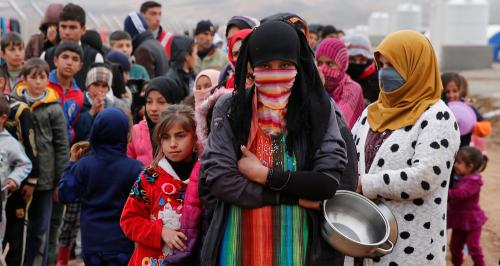
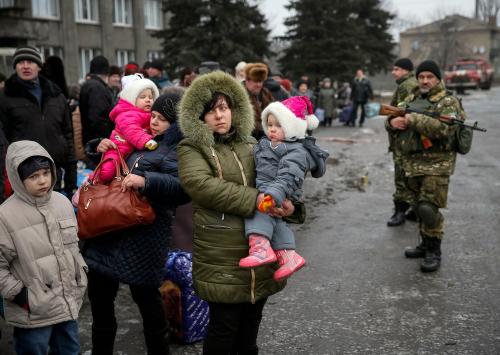
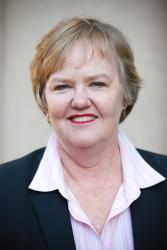

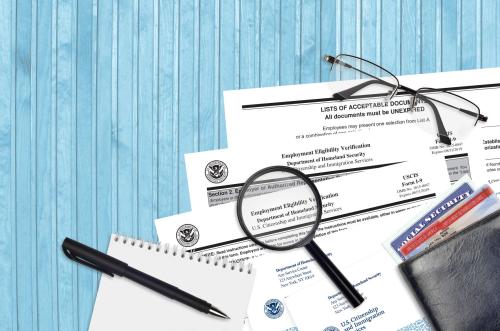
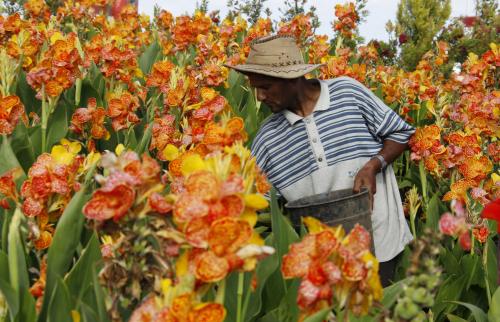
Commentary
António Guterres: Good for the U.N., good for the world, but gender issues remain
October 6, 2016